A friend of mine tells a story about being selected for a so-called random drug test at a Houston company within a day or two of having had an "unpleasant" conversation with a senior associate. She was not in a safety-sensitive position and had been tested less than two months earlier as part of her pre-employment background check. The company's random testing policy was vague at best, and the employee rumor mill circulated stories suggesting that anyone who "rocked the boat," was usually tested. It was kind of a joke until it happened to her. It was done in such a way that it disrupted the better part of her day by sending her off-site, accompanied by an HR person. Even her supervisor suggested the "randomness" of the testing was suspicious.
There is a right way and a wrong way to conduct random drug testing or "sweeps," as they are sometimes called. While there were some protocols that seemed to fall outside of best practices in her particular case, it illustrates the importance of ensuring your employees understand the process so there is no second-guessing or suspicion of bias about why a particular selection was made.
Your employee education materials should include a well-written explanation of your Houston Drug Free Workplace policy and drug testing protocols. You wouldn't want employees to think that random drug testing is a matter of "pulling names out of a hat," or possibly a form of retaliation. All kinds of gossip and conjecture can occur if the procedure is not clearly explained and consistently followed.
Random Drug Testing Done Right
In environments that do not require DOT compliance protocols, we occasionally run into situations where the "randomness" of the selection is questionable. That's why we typically recommend random testing that follows DOT guidelines, even if it is not mandated for specific employee groups. Being clear about your drug testing procedures--particularly those that involve random tests--can save you headaches down the road. Many times we have received phone calls from Texas Workforce Commission investigators who are following up on unemployment claims that involved dismissal for a positive result on a random drug test. The first question asked is, "How was the employee selected for the testing?" What they want to hear is that selection was generated by computer using a double-algorithm. They also ask whether the protocol is in writing and fully explained to the employees in advance.
When implementing random drug testing, it is important to ensure the process is thoroughly developed. Your company will minimize risks and maintain compliance with regulations and/or best practices by thinking this through in advance. Don't let your random drug testing program be a "knee-jerk" reaction to a problem! There are many components to consider when developing a random drug testing policy within your organization. Start the conversation by answering these three questions:
- Which employee groups will be tested?
- How frequently will each group be tested?
- What types of tests will be performed?
There are many options to choose from within each of these areas. It is important to determine which methods will be most effective within your organization and why. We will go into additional detail in a future article, but when done according to best practices, random drug testing Houston employees is a fair way for employers to increase productivity, lower workers' compensation claims, and reduce absenteeism by encouraging employees to more easily say no to illegal drug use. As a result, many organizations have begun adding random drug testing programs in addition to pre-employment and post-accident drug testing.
Implementing random drug testing within your organization can help deter drug use among staff and improve employees' health, wellness, and safety overall. Furthermore, random selection is a great alternative that provides unbiased results. Such an approach can assist in establishing an effective drug testing policy and fostering a drug-free workplace environment. What about you and your workplace? Do you have any stories of random drug testing pros or cons that you would like to share?

.png?width=500&height=500&name=Blue%20and%20White%20Classic%20Shield%20Financial%20with%20Star%20Logo%20Design%20(1).png)


